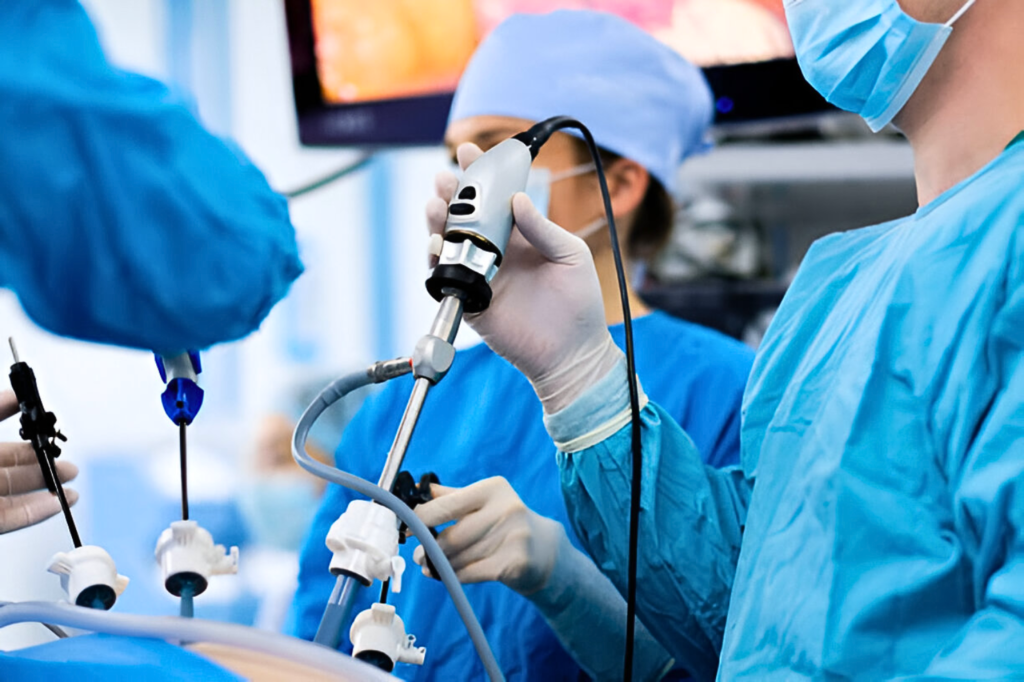Synopsis
Hemorrhoids, though a common condition, can cause significant discomfort, pain, and distress. While many cases respond to lifestyle changes and conservative treatments, some severe or persistent hemorrhoids may require surgical intervention. Among the available surgical options, hemorrhoidectomy (Hemorrhoid Surgery)—the surgical removal of hemorrhoids—is the most common and effective approach.
Before Hemorrhoid Surgery: Preparation and Planning
A successful surgical outcome begins with proper preparation. Here’s what you can expect:
- Consultation and Evaluation:
- Your healthcare provider will review your medical history and perform a physical examination to assess the severity of your hemorrhoids.
- Based on the type, size, and number of hemorrhoids, as well as your overall health, the doctor will recommend the most suitable surgical technique. Options may include traditional hemorrhoidectomy, stapled hemorrhoidopexy, or minimally invasive procedures like laser surgery.
- Pre-Surgical Instructions:
- You may be asked to fast for several hours before surgery, particularly if general anesthesia is planned.
- Some medications, such as blood thinners or non-steroidal anti-inflammatory drugs (NSAIDs), may need to be stopped to reduce the risk of bleeding during the procedure.
- Your doctor might recommend a bowel preparation regimen, such as using laxatives or enemas, to ensure a clean surgical site.
During Hemorrhoid Surgery: What Happens in the Operating Room
The surgical procedure itself is straightforward, with the main goal of relieving symptoms and preventing recurrence.
- Anesthesia:
- Depending on the complexity of your case and the type of procedure, the surgery may be performed under local anesthesia (numbing the specific area), spinal anesthesia (numbing the lower half of your body), or general anesthesia (putting you to sleep).
- The Procedure:
- During a hemorrhoidectomy, the swollen or prolapsed hemorrhoidal tissue is carefully excised, and the area is sutured for proper healing. In some cases, absorbable sutures are used, which dissolve on their own.
- Alternatively, a stapled hemorrhoidopexy uses a special device to reposition and secure the hemorrhoids while cutting off their blood supply, causing them to shrink. This method may result in less pain and faster recovery but is typically reserved for specific types of hemorrhoids.
After Hemorrhoid Surgery: Recovery and Post-Operative Care
Recovery following hemorrhoid surgery is crucial to ensure optimal healing and prevent complications. Here’s what you should be prepared for:
- Immediate Recovery:
- It is normal to experience pain, swelling, and discomfort at the surgical site for several days. Your doctor will prescribe appropriate pain management medications, including oral analgesics or topical numbing agents.
- Taking sitz baths—soaking the affected area in warm water—multiple times a day can help alleviate discomfort, reduce swelling, and promote healing.
- Dietary and Lifestyle Adjustments:
- A fiber-rich diet is essential post-surgery to prevent constipation, which can strain the surgical site and delay healing. Include fruits, vegetables, whole grains, and adequate water intake in your daily routine.
- In some cases, a stool softener may be prescribed to ease bowel movements.
- Wound Care:
- Keeping the surgical area clean and dry is vital to prevent infection. Follow your doctor’s instructions regarding hygiene and dressing changes.
- Avoid strenuous activities or heavy lifting for the first few weeks to minimize pressure on the rectal area.
- Follow-Up and Monitoring:
- Regular follow-up appointments will allow your doctor to monitor your recovery, address any concerns, and identify potential complications like infection, bleeding, or recurrence.
Returning to Normal Activities
- Most patients can resume light activities within a week, depending on the type of surgery and individual healing progress.
- However, complete recovery, including the resumption of more intense physical activities, may take two to four weeks. Your doctor will provide specific guidelines based on your condition.
A WORD FROM HEGDE FERTILITY: A Path to Relief and Recovery
Hemorrhoid surgery offers a definitive solution for those who have not found relief through other treatments. By preparing well, understanding the surgical process, and adhering to post-operative care instructions, you can achieve lasting relief and a better quality of life.
While the idea of surgery can be intimidating, it is a proven and effective treatment for advanced hemorrhoids. If you continue to experience symptoms or if your condition worsens despite conservative efforts, consult a healthcare provider to discuss your options. With proper care, prevention strategies, and a commitment to recovery, you can reclaim comfort and confidence in your daily life.

